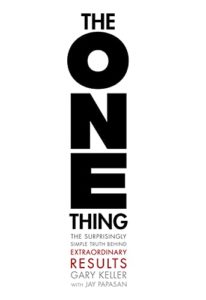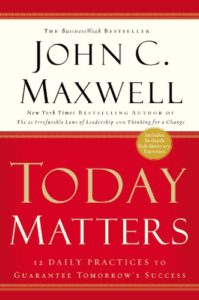
Guard well your spare moments. – Emerson
If you’ve ever taken one of those long international flights you know a thing or two about how changing multiple time zones messes with your body clock.
A few years back, I spent my summer in China. My departure out of the U.S. was on a 16-hour non-stop flight from Newark to Hong Kong. The adjustment during the first few days in China was not that difficult all things considered. But it took me about a week to get fully adjusted once I came home. Crossing back all those time zones, the loss of sleep, and reacquainting myself with my normal routine was challenging.
Time is our most precious commodity. It always has been and always will be. And in leadership and management circles, we hear a lot about “time management”. But, quite honestly, “time management” is a myth. All we can do is prioritize it.
Concerning time management, author Myers Barnes writes:
“Time management has nothing to do with the clock, but everything to do with organizing and controlling your participation in certain events that coordinate with the clock. Einstein understood time management is an oxymoron. It cannot be managed. You can’t save time, lose time, turn back the hands of time, or have more time tomorrow than today. Time is unemotional, uncontrolled, and unencumbered. It moves forward regardless of circumstances and, in the game of life, creates a level playing field for everyone.”
As a leader, how you “manage” time or better yet, set the priorities of how your time will be invested is of great importance. Jim Rohn was correct when he said, “Either you run the day, or the day runs you.” And this is your challenge as a leader.
I’d like to share a few things that I’ve learned over the years on this topic in hopes that they will add value to you on your leadership journey.
I had to learn the myth that everything matters equally
I learned this principle from Gary Keller’s book, The One Thing. In it, he writes: “When everything feels urgent and  important, everything seems equal. We become active and busy but this doesn’t actually move us any closer to success. Activity is often unrelated to productivity, and busyness rarely takes care of business.” And this is such a necessary thing to learn in leadership.
important, everything seems equal. We become active and busy but this doesn’t actually move us any closer to success. Activity is often unrelated to productivity, and busyness rarely takes care of business.” And this is such a necessary thing to learn in leadership.
Keller makes the case that a to-do list can easily lead you astray. More times than not, it’s simply the things you think you need to do; which often is nothing more than the first thing you thought of. Keller adds, “If your to-do list contains everything, then it’s probably taking you everywhere but where you really need to go.” In short, the most menial thing on your to-do list is not equal to the most important thing. Stop buying into the myth that all things are equal. They’re not. As Keller recommends, in place of a “to do” list, make a success list. It will change your mindset and your focus.
I had to learn that I choose my life by how I spend my time
I learned this very important principle from John Maxwell. In his book, Today Matters, he writes, “If you’re over the age of twenty-one, your life is what you’re making it. To change your life, you need to change your priorities.” 
The playing field with time is level. We all get the same amount regardless of who we are. The priorities you set determine how your time is used. Changing our approach to our days makes all the difference between time well spent or time wasted. Maxwell framed it in three questions that are quite useful.
- What is required of me? When ordering priorities, always start with the requirement question and give it careful thought before moving on to the next question.
- What gives me the greatest return? As you grow as a leader, you will discover that there are some things that will give you a greater return than others. What are they?
- What gives me the greatest reward? If you only do what you must and what is effective, you will be highly productive, but you may not be content. It’s important to consider what gives you personal satisfaction. But don’t get these questions out of order.
Final Thoughts
As leaders, we have to understand that we can’t, and shouldn’t, do everything. And this is why establishing your priorities is so important. You have to be your own timekeeper. Your time is too valuable to relinquish to someone else.
©2022 Doug Dickerson